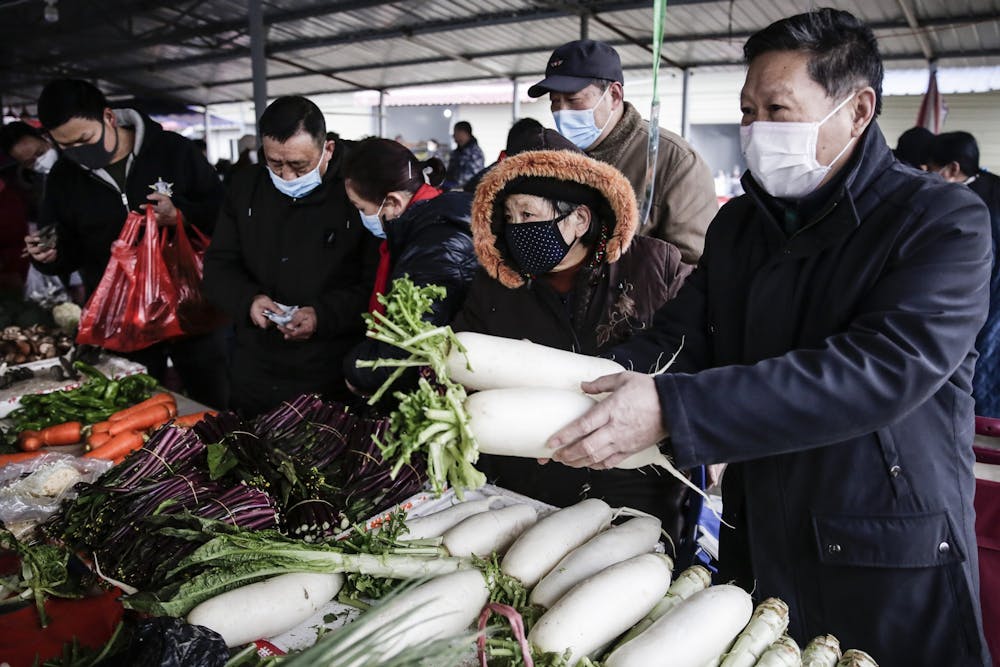While the hysteria and contagion surrounding the coronavirus spreads, global citizens and members of the IU community need to support individuals who have families and friends in the highly affected areas, especially China.
The novel coronavirus is a respiratory illness related to SARS and MERS that originated in Wuhan, China. Officials confirmed the first U.S. cases on Sunday. At least six cases have been confirmed in Illinois, Arizona, California and Washington. There has been a suspected case in Porter County, Indiana. The virus has also spread to Australia, Germany, France, Canada, Finland, United Arab Emirates, Sri Lanka and other countries in east and southeast Asia. More than 170 people have died, and over 7,700 are infected, as of Jan. 30.
The virus now seems to be spreading from person to person, according to a Center for Disease Control and Prevention FAQ. There is no known original cause, longevity or cure. The CDC considers the coronavirus a very serious public health threat, even though it deems the immediate health risk to be low, according to its website.
As the situation worsens, it will become increasingly likely that the outbreak will have an affect on members of the IU community, especially those with loved ones in affected areas. We should make public efforts by having public officials speak out against hate and hysteria and provide necessities for those who cannot travel, to show support rather than contribute to alienating them.
IU records show 8% of students were international students in fall 2019. More than 3,000 were from east or southeast Asia. More IU Bloomington students come from California and Illinois, two of the states with confirmed cases, than any other state besides Indiana. California and Illinois students account for more than 13.5% of the student population.
This is a considerable amount of people who might be affected by the outbreak or the trauma brought on by the spread of the virus which will affect their family and friends at home.
In the meantime, it is IU's responsibility to provide as much support and assistance as it can to students and staff, both domestic and international, affected by the wide-spreading virus.
Racist views against Chinese people have been circulating on Twitter and other social media sites. There was even a racist headline published in France reading “Yellow Alert.”
According to Vice, because of the theory that bacteria in certain foods and the virus are linked, certain individuals believe it gives reason for them to openly express their distaste toward Asian culture, cuisine and citizens.
We must support international students by speaking outwardly against those who expel discrimination or do not favor helping those that are affected.
As for American community members, we should help by emphasizing the true risks of contracting the disease. IU has sent out several email alerts already, but must provide proper care by proactively directing the community to health services, providing necessities to people affected and being open about the actual health risks and developments to the community.
While some might see this as an opportunity to expel their bigotry on the Asian community, it is the job of the global citizen to stomp the flames of discrimination out, not fan them forward. However, support for community members is not enough on its own. It must be paired with urgent efforts to stop the spread of the virus.
Kailyn Hilycord (she/her) is a senior studying journalism, English and music. She plans to pursue graduate studies in journalism.






